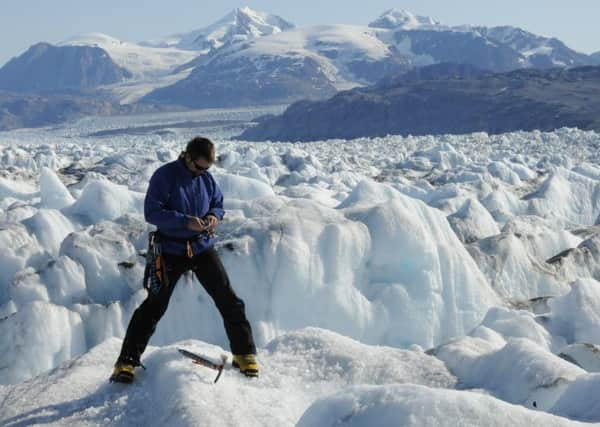Scottish climate expert dies in tragic Antarctic accident


Gordon Hamilton, 50, originally from Dundee and married with two children, was working at a field operation on White Island, in the Ross archipelago.
He died on Saturday October 22, according to the National Science Foundation (NSF).
Advertisement
Hide AdAdvertisement
Hide AdDr Hamilton’s research had revealed drastic and rapid change in ice sheets across Antarctica.
He was a prominent climate scientist, studying glaciers and their impact on sea levels in a changing climate.
In addition to his field work, he was an associate research professor at Maine University at the Climate Change Institute.
The university’s president, Susan Hunter, led the tributes, saying: “The University of Maine has lost one of its leading scientists.
“Gordon’s glaciology research around the world — from Antarctica to Greenland — was second to none. He leaves a legacy as an outstanding scientist, and a caring mentor and well-known teacher to undergraduate and graduate students.
“Our heart-felt thoughts and prayers go to his wife, Fiona, and their two children, Martin and Calum, and his friends and colleagues around the world.”
Dr Hamilton grew up in Dundee, attending Ancrum Road Primary School and Harris Academy.
He was camping with his research team in the Shear Zone, where two ice shelves meet in a large expanse three miles wide and 125 miles long.
Advertisement
Hide AdAdvertisement
Hide AdIce in the zone can be up to 650 feet thick and is intensely crevassed.
Dr Hamilton’s team had been working to identify crevasses, some of which were found and filled earlier in the week. Both teams included experts familiar with the area and with glacial safety.
Kelly Falkner, director of the NSF’s division of polar programmes, said: “The death of one of our colleagues is a tragic reminder of the risks we all face — no matter how hard we work at mitigating those risks — in field research.”
In a 2013 video uploaded by Maine University, Dr Hamilton was heard saying: “I can’t think of a better job or another job I would rather be doing.”
His research revealed drastic and rapid change in ice sheets across Antarctica.
Before joining the university in 2000, he had held positions at the Byrd Polar and Climate Research Center at Ohio State University and the Norwegian Polar Institute.
Dr France Córdova, director of the NSF, said: “I am deeply saddened by the news of the tragic death of Dr. Hamilton. Our thoughts are with the family and entire community as we mourn this loss.”
His death remains under investigation.